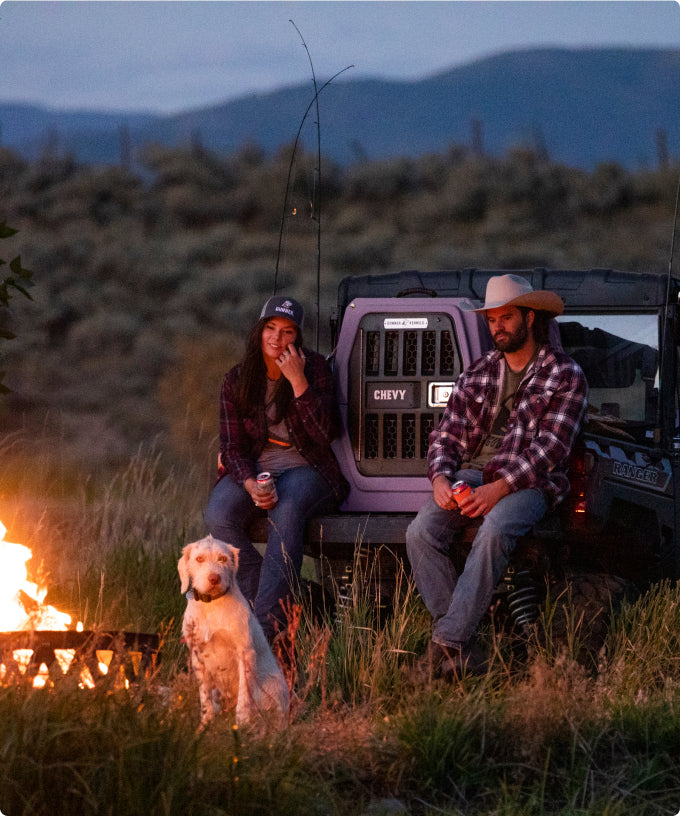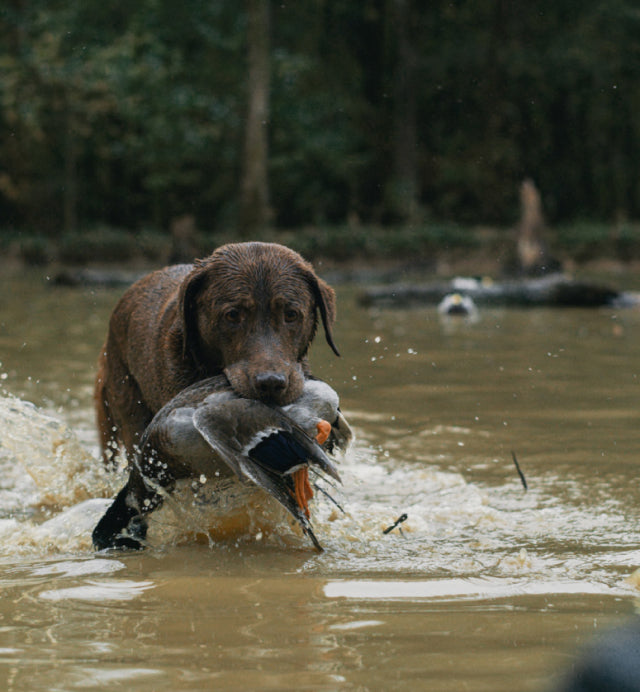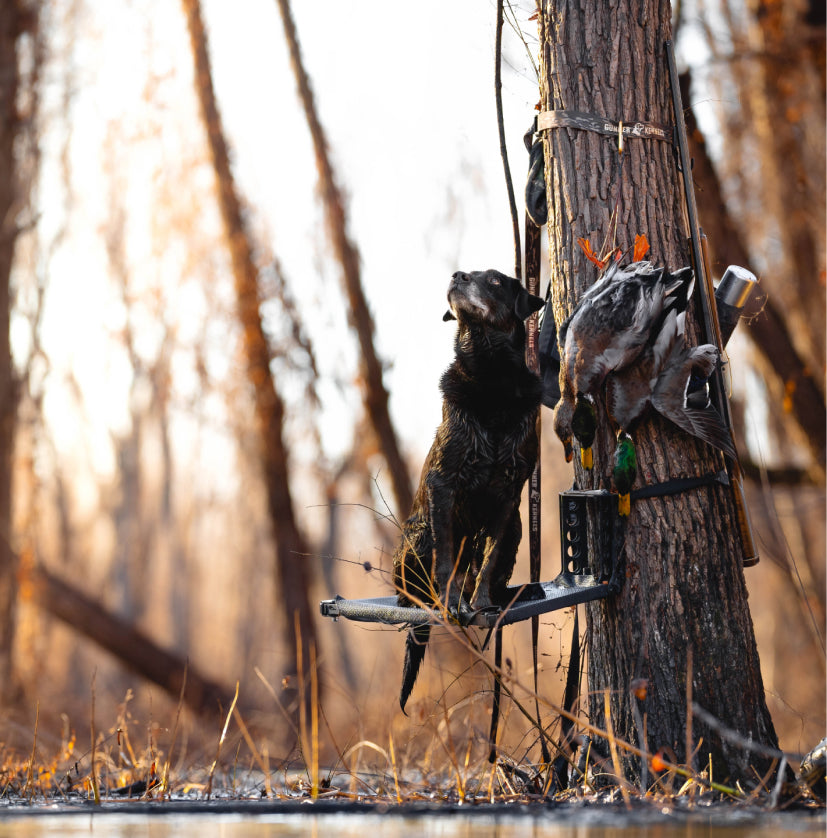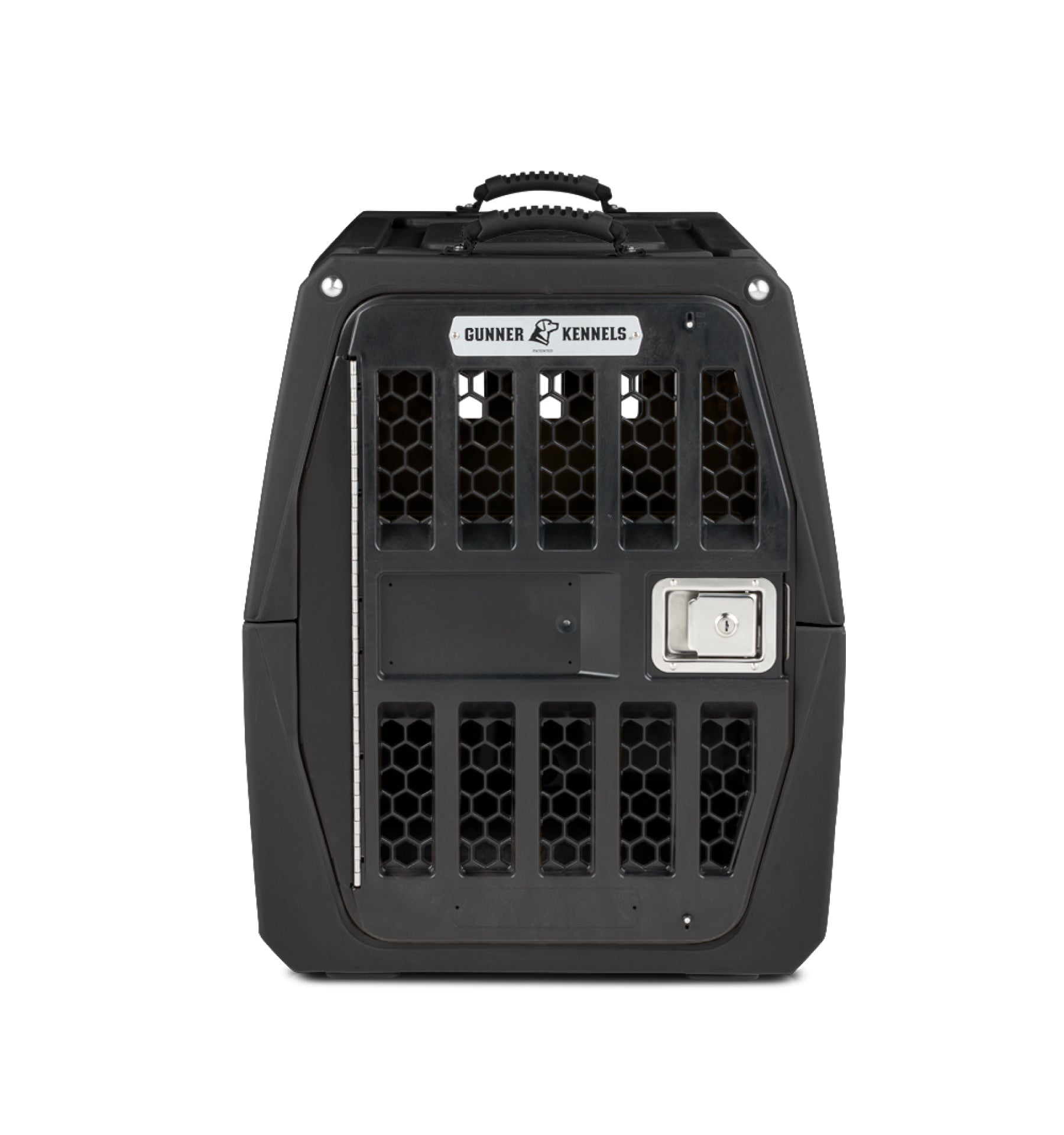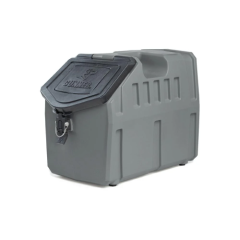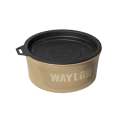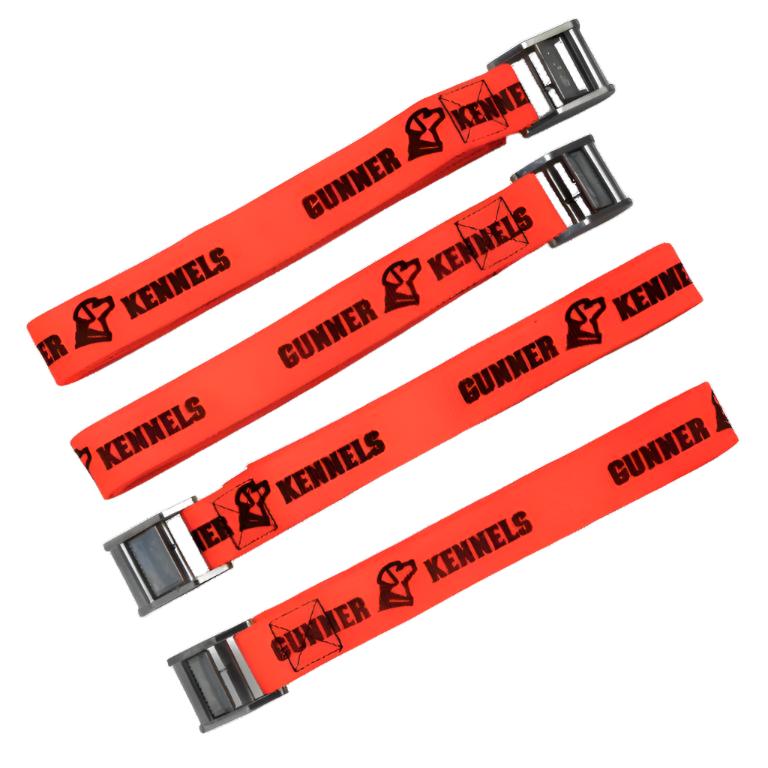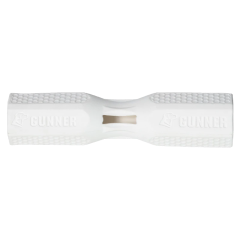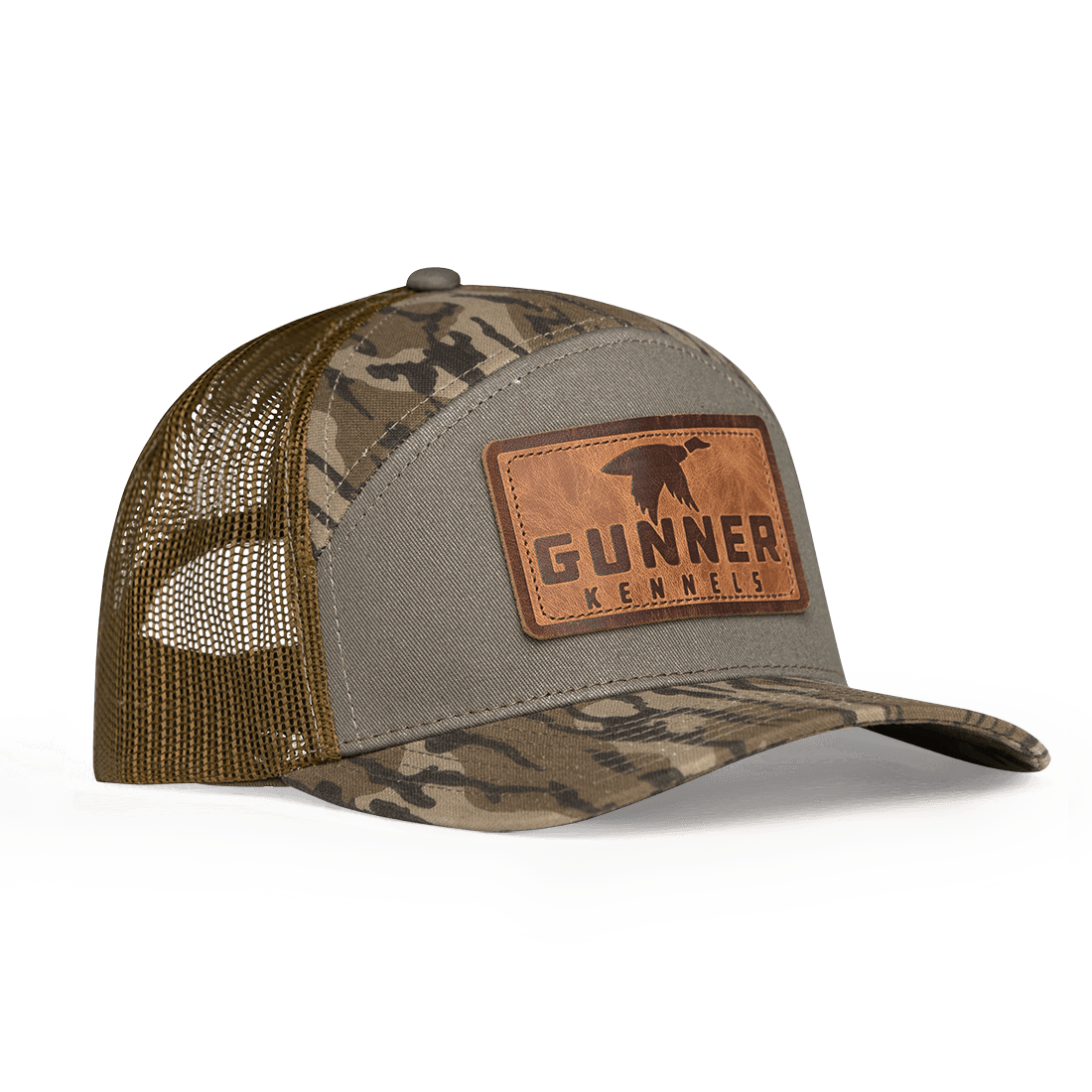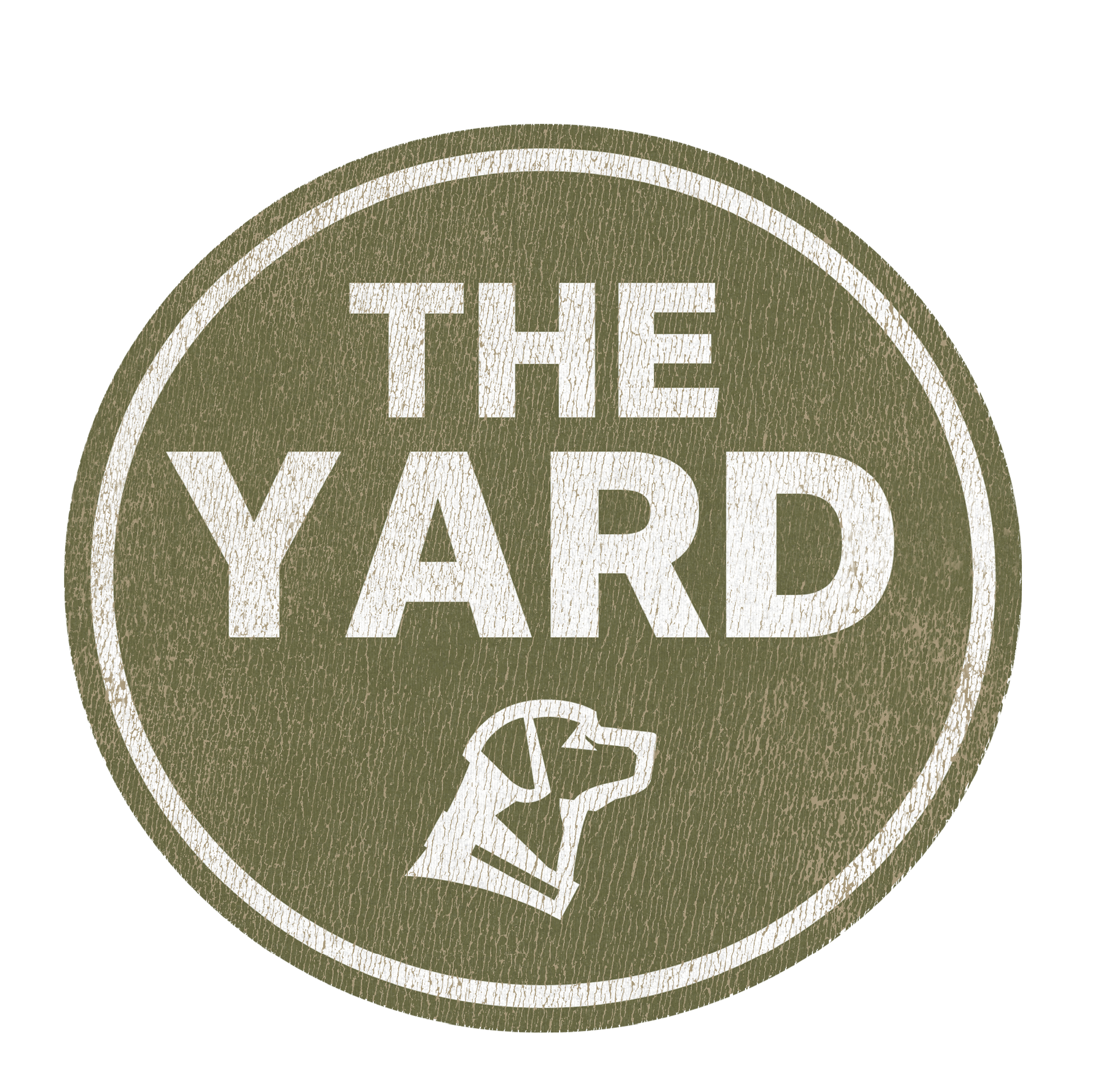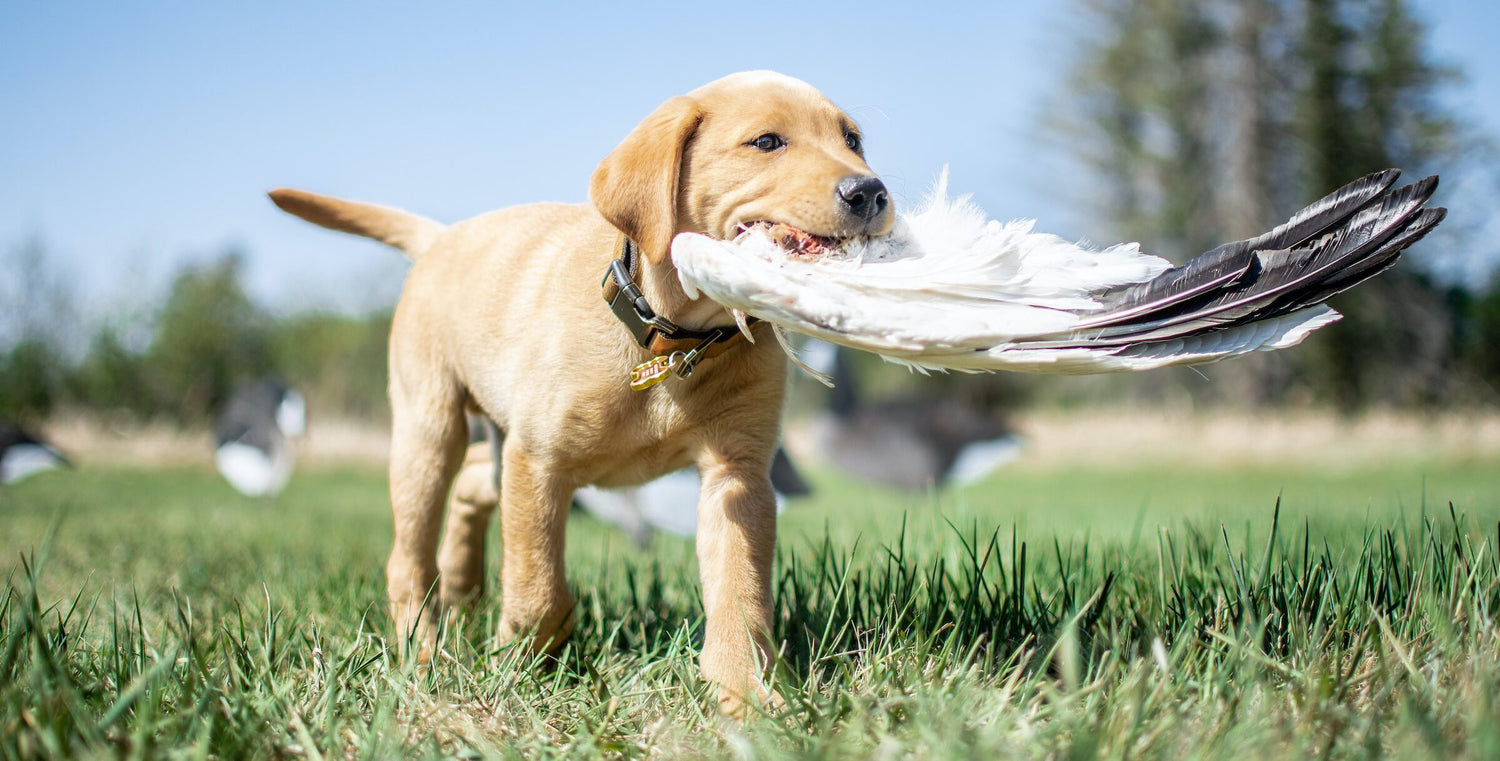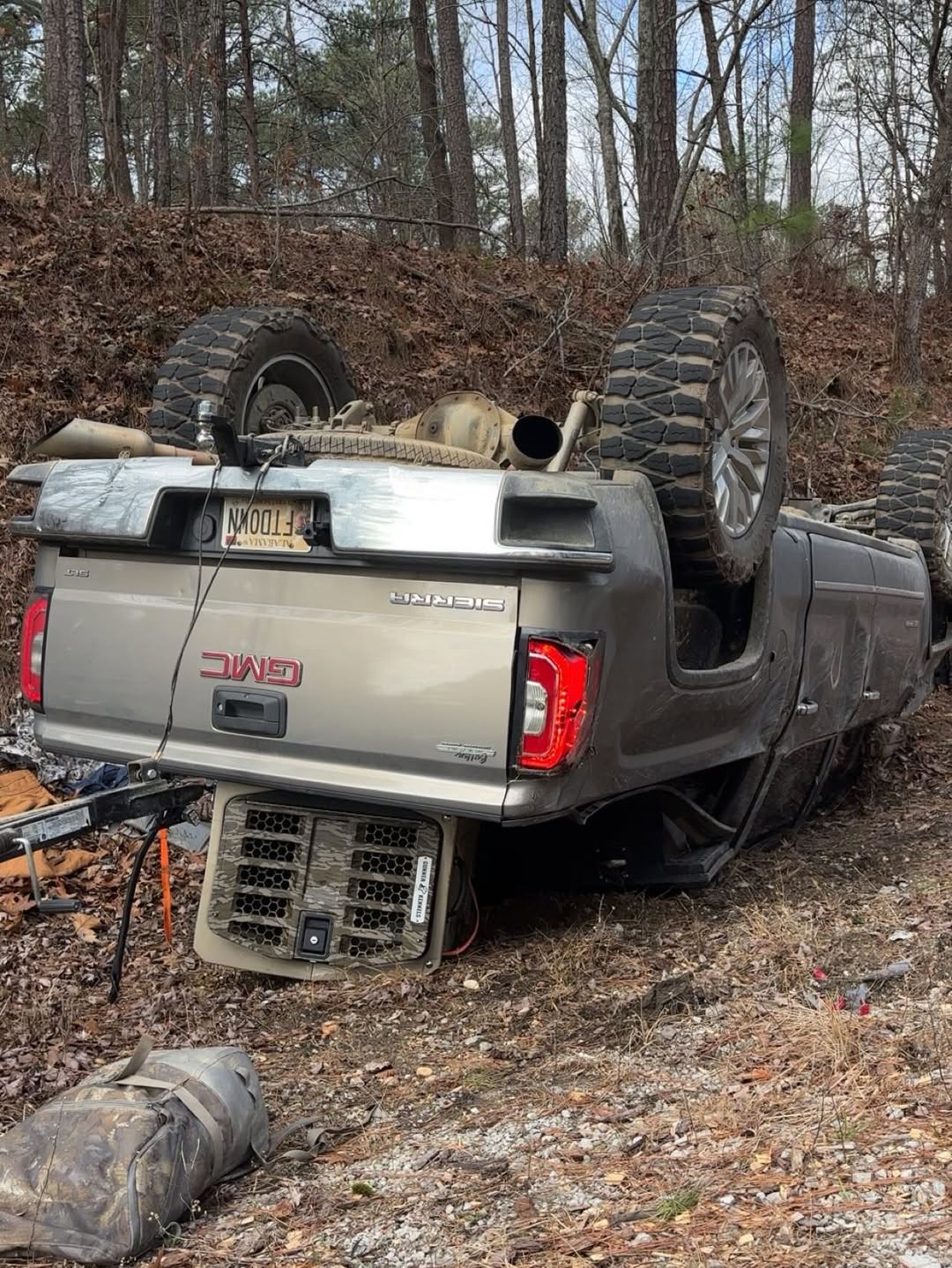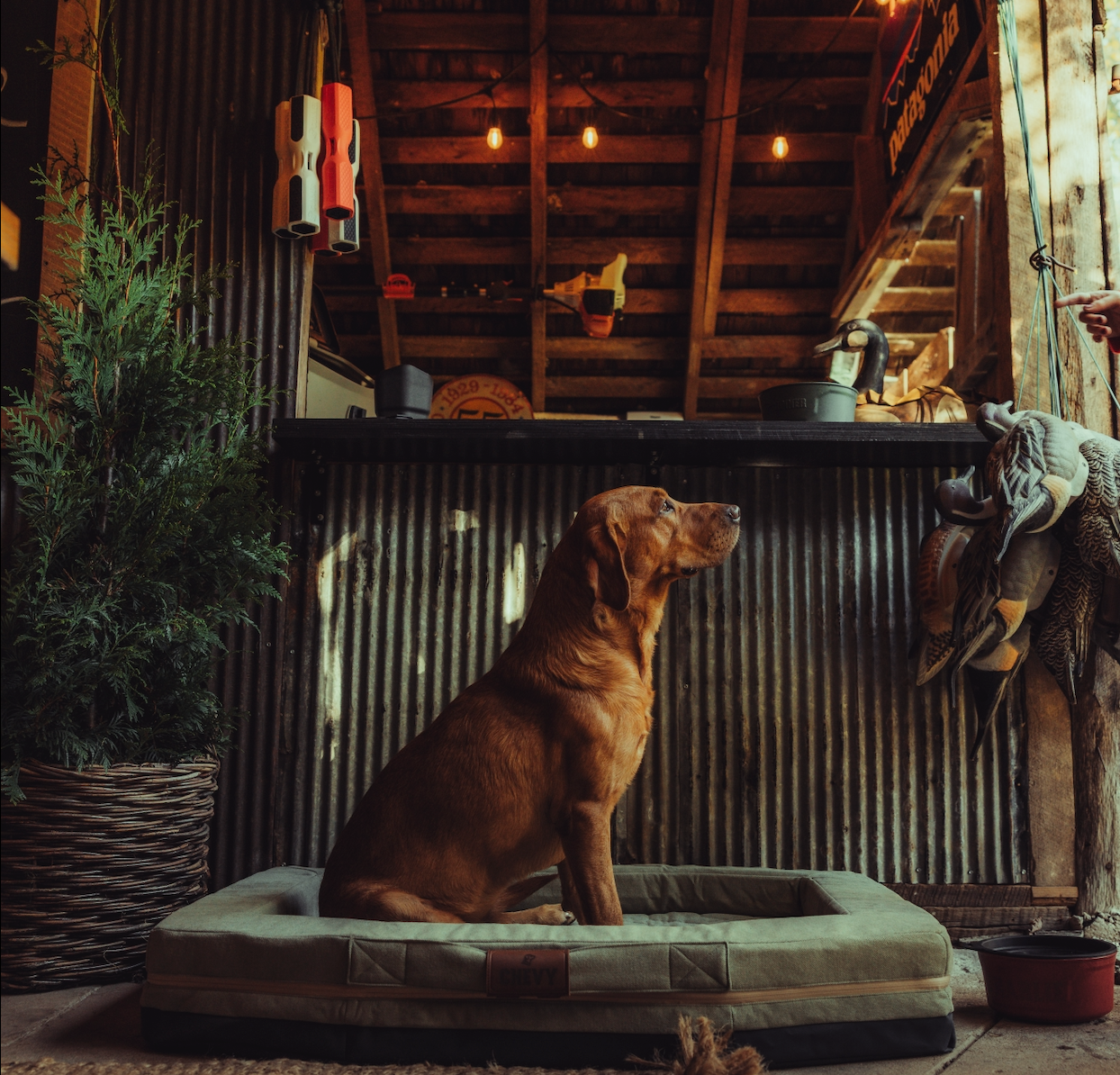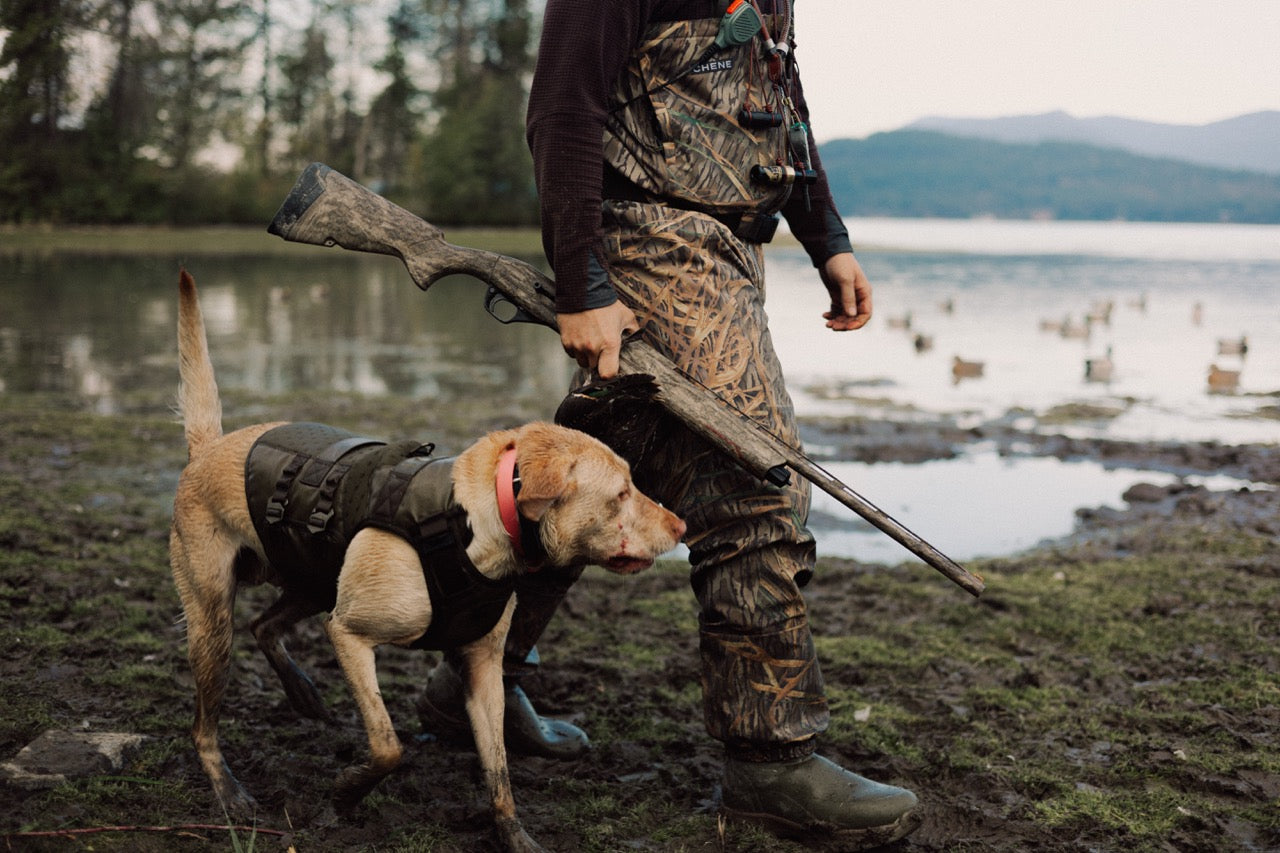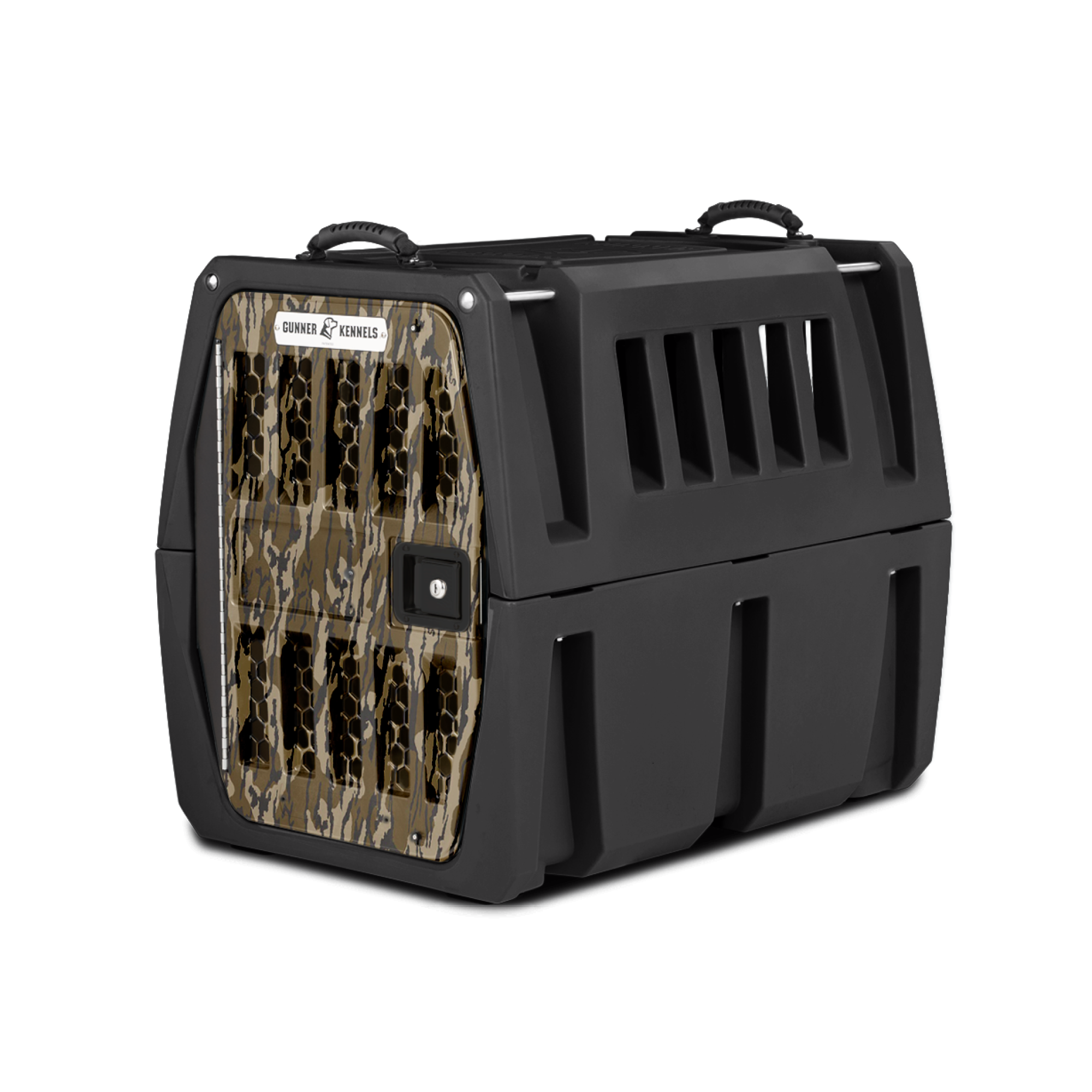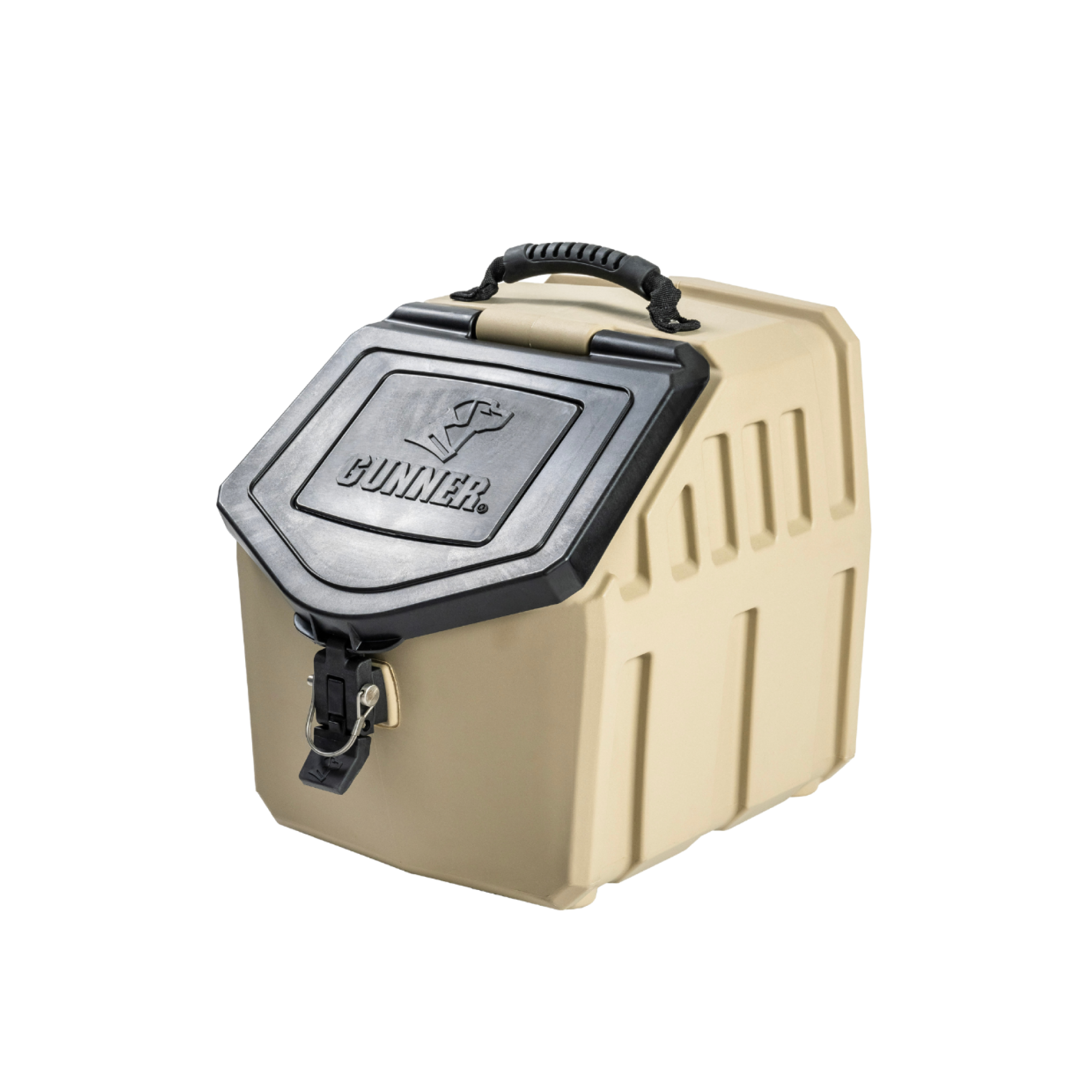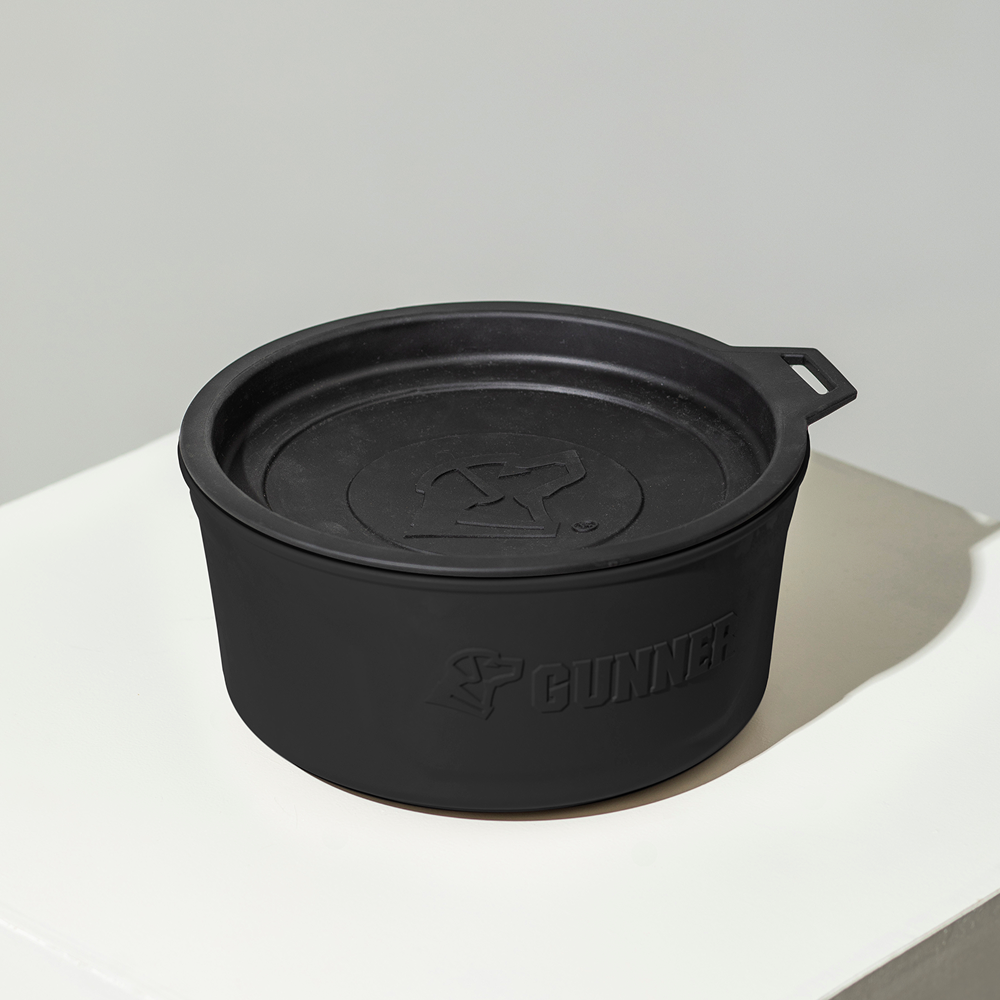So how do you choose the best puppy for you?
If you’re interested in adding a puppy to your home and you’ve already decided on the breed that best aligns with your lifestyle, then get ready because here’s where the real fun begins: interviewing breeders. Choosing the correct breeder is an incredibly important step in the puppy buying process because you want to ensure that you’re both on the same page with their goals for the litter and your goals for the dog. Here are a few topics to review with your prospective breeders:
Do you have similar goals with the puppy and breeder?
What is the breeder looking to get out of the litter of puppies they’ve produced? Are they looking for a hard-charging field trial dog or do they want a relaxed, family companion? Something to strongly consider is the type of lifestyle you live and how to naturally insert a dog into that lifestyle so there’s alignment and not disruption. Maybe you love going on day hikes and short hunts on the weekend. You’ll want a trustworthy breeder with a litter that will provide you the best chance at having that in a dog.
In the same way, if your schedule or living arrangements don’t allow for much time and/or space to let your dog burn off energy, then it might be best to say away from high-energy working breeds that need to be regularly active and love to work.
-

Photo courtesy of Peter Cirilli -

Photo courtesy of Jack Whitney
What are the puppy’s parents like?
You should always ask to meet the parents and get an understanding of their size, shape, color, temperament, energy level, etc. because this can show you potential for what your puppy could be like as they get older. Look to see how they behave in the house, in the yard, around children and other dogs. Be sure to touch their ears, feet and mouth. You’ll want to gauge the dog’s reaction and body language to see how comfortable they are. You can learn a lot about a dog by reading their body language.
It’s also great to ask the breeder about their training philosophy and how difficult it was to train the parents. Some dogs can be a little more stubborn than others and for a new dog owner, this might be outside your comfort zone– and that’s ok.
Review your paperwork
Getting to know the parents is great because you can search for qualities in person, so it’s good to look at the dog’s pedigree to gauge it’s relatives. Many people have different thoughts on titles and accolades but the bottom line is that if you’re going to make an investment in a dog for your family and for your hunting blind, you’ll want to stack the deck in your favor by having as much proof as you can showing the dog will be what you’re looking for. If you’re looking for a hunting dog and you choose a puppy who’s been intentionally and meticulously bred for generations, then you have a good chance of having a dog that likes hunting. It’s not a promise, but it’s certainly stacking the deck in your favor.
Health clearances
Speaking of paperwork, it’s important to work with a breeder who does their best to ensure a safe, healthy litter of puppies. There’s a lot of genetic testing that can be done prior to having a litter of puppies to check for the possibility of poor joints, eyesight, skin diseases and many other issues. The Orthopedic Foundation for Animals has a lot of resources to educate owners about a variety of diseases and complications with dog breeds. Be sure to speak with your potential breeder to learn about the prep work they did to ensure a healthy litter.
How are you raising the puppies?
It’s important to speak with a breeder about where and how they’re raising the puppies because every breeder is different. Some breeders will raise their puppies in an immaculate facility with 24/7 care, some people raise them in their living room and some people raise puppies in their backyard. It’s important to support healthy breeding practices that align with your values as a pet owner.
It’s also important to learn about the diet of the mother and the puppies. As the puppies get older, they will be weaned off the mother’s milk and onto puppy food. This is usually a crushed puppy formula that is watered down so they can more easily ingest it. Be sure to buy the same formula before bringing home your puppy so you can either continue their diet or offer a slow transition to another food you’d like to feed them.
How does someone choose a puppy within the litter?
Once you’ve determined that yes, this is a breeder that I’d like to support, then you need to discuss how the puppy will be chosen. Earlier, we’ve mentioned the importance of aligning on goals with the puppy and here’s where that comes into play. Some breeders allow puppy owners to choose puppies based on who paid them first (you’ve likely heard the phrase “pick of the litter”) and others choose a puppy for you based on what best fits your lifestyle. For example: if you’re looking for the hard-charging competitor, then the breeder might give you the puppy that demonstrates attributes that best align with that desire, rather than the relaxed, sleepy pup in the corner.
Overall, it’s important to have clear communication with any breeder, or even prospective breeders, because you’ll end up choosing the best fit for you, the puppy and your family.


